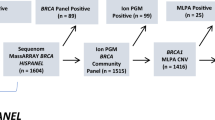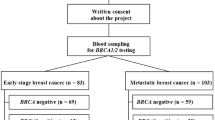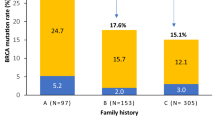Abstract
Breast cancer is the most common cancer among American women. Any woman can be affected by breast cancer, with risk for the disease increasing with age. Risk for breast cancer is also exacerbated in women who have certain genetic alterations. Mutations in the BRCA1 and BRCA2 genes predispose women to breast and ovarian cancer, and are increasingly recognized in prostate and pancreatic cancers (1-3). In Caucasian and Asian ethnicities BRCA mutations are associated with basal-type/triple-negative disease. However this association between BRCA gene mutations and basal/triple-negative disease has been understudied in other ethnicities (4-6). The incidence and mortality of breast cancer of Hispanics and Native Americans are lower than other ethnicities; however they are underrepresented in epidemiological and clinical studies. Further, it is known that common recurrent mutations in BRCA1 and BRCA2 genes exist in Hispanic/Latino communities which account for 35-45% of mutation carriers (7, 8). The objective of our study is thus to investigate triple negative disease and BRCA gene mutations in Hispanic women.
Similar content being viewed by others
Article PDF
Author information
Authors and Affiliations
Corresponding author
Rights and permissions
About this article
Cite this article
Dean, M., Silverton, L. & Sawitzke, J. Nationwide Study of Breast Cancer Risk Factors in Latinas. Nat Prec (2011). https://doi.org/10.1038/npre.2011.5691.1
Received:
Accepted:
Published:
DOI: https://doi.org/10.1038/npre.2011.5691.1



